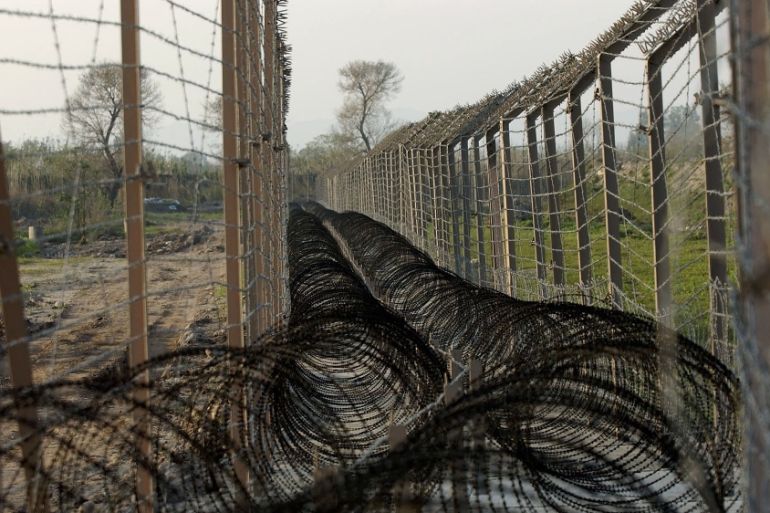Pakistani military says ‘no space for war’ with India
Pakistan’s military urges neighbouring India to respect ceasefire commitment in disputed region of Kashmir.

Islamabad, Pakistan – Pakistan’s military says there is “no space for war” with its eastern neighbour India, calling upon its regional rival to respect a reiterated commitment to a ceasefire in the disputed region of Kashmir made last week.
Speaking at a press briefing on Monday, Pakistani military spokesperson Major-General Asif Ghafoor said he wished for all issues between the nuclear-armed neighbours to be resolved through dialogue.
“War is a failure of diplomacy,” he said. “We are two nuclear states, there is no space for war. So dialogue continues. India has always been the one to back out from dialogue, not Pakistan.”
India and Pakistan, partitioned when the Indian subcontinent gained independence from the British in 1947, have fought two of their three wars over the disputed northern region of Kashmir, which both claim in full but administer separate portions.
|
|
Pakistan and India-administered Kashmir are divided by the Line of Control (LoC), a boundary along which both sides have massed military personnel. A ceasefire was signed in 2003, but has been frequently violated in recent years.
This year, Indian forces fired upon targets on the Pakistani side of the Line of Control at least 1,577 times, Ghafoor alleged, killing 48 people and wounding more than 265.
India’s foreign ministry says Pakistan has violated the ceasefire at least 1,088 times in 2018, killing 36 people and wounding 127 others.
On May 29, the Indian and Pakistani militaries renewed their commitment to the 2003 ceasefire, according to statements released by both.
“Both [senior military officers] also agreed that in case of any issue, restraint will be exercised and the matter will be resolved through utilisation of existing mechanisms of hotline contacts and border flag meetings at local commander’s level,” a Pakistani statement said.
Sporadic firing, however, has continued on both sides.
Pak-US ties ‘under stress’
In his wide-ranging press conference, Ghafoor also spoke of how Pakistan’s relations with the United States, an erstwhile ally in the war against armed groups, was “under stress”.
“There is a great deal of dialogue happening on the diplomatic level as well as on security assistance,” he added, however.
The United States accuses Pakistan of providing sanctuary to armed groups – including the Afghan Taliban and Haqqani Network – that it is fighting in neighbouring Afghanistan. In January, US President Donald Trump cut roughly $1.1bn in security aid to Pakistan over the issue.
Pakistan denies the charge, and Ghafoor reiterated Pakistan’s position on Monday.
“Before [a 2014 military operation], it was a question of capacity, not the will. But from [2014] onwards, we have wiped out all terrorist organisations across the board, and right now there is no organised infrastructure of any terrorist organisation, including the Haqqani Network [in Pakistan],” he said.
The military spokesperson linked the issue of the group’s possible “residual strength” with the presence of Afghan refugees in the country, saying refugee camps allowed fighters safe havens from which to operate.
Pakistan is home to roughly 1.4 million registered Afghan refugees, according to the UN refugee agency.
While Pakistan has often carried out raids on refugee settlements in the wake of “terrorist attacks”, it has yet to publicly charge a refugee with abetting attacks on Pakistani soil.
Asad Hashim is Al Jazeera’s Digital Correspondent in Pakistan. He tweets @AsadHashim